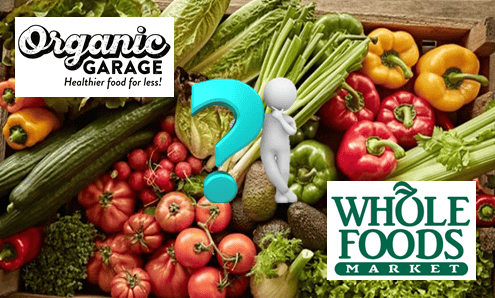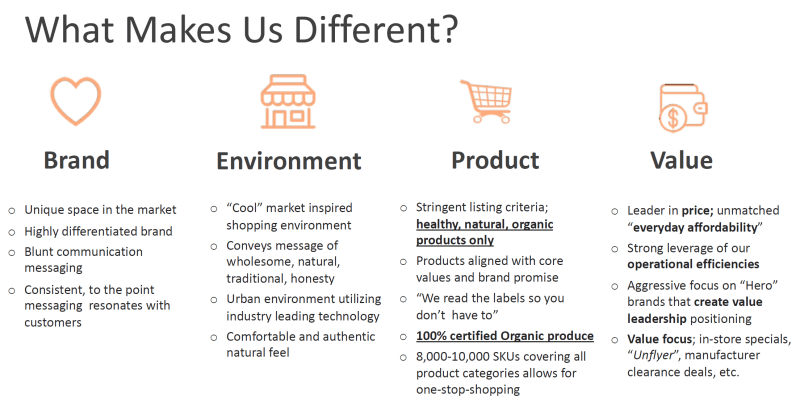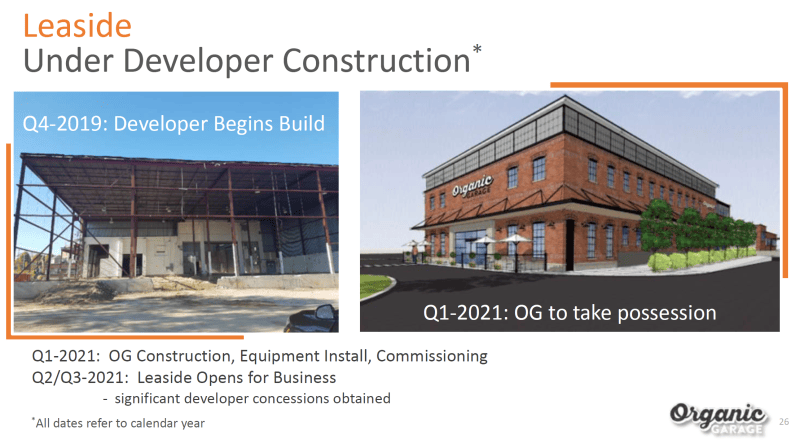
Last week Organic Garage (OG.V) released its audited financial results for the year ended January 31, 2021 and the quarter ended January 31, 2021.
OG reported “a significant increase in sales and gross profit for the quarter.
Notably, net losses plummeted 97% from $3 million, to $100,000.
Q4 Financial Results (comparison to quarter ended January 31, 2020):
- Sales increased 32.7% to $7.3 million from $5.5 million
- Gross profit dollars increased 21.9% to $2.2 million from $1.8 million
- Net loss improved to $0.1 million from a loss of $3.0 million
- Loss per share of $(0.00) compared to loss per share of $(0.08)
- Raised $1.0 million through non-brokered private placement offering
- Working capital of $1.0 million from a working capital deficit of $(1.0) million.
Organic Garage is an Ontario-based independent organic grocer with a growing footprint, increasing revenue and new business verticals.
Founded in 2005 by a fourth-generation grocer, Matt Lurie, Organic Garage‘s 4-outlet Toronto area chain did $24 million in sales last year.
Like Whole Foods (purchased by Amazon (AMZN.NASDAQ) for $13.7 billion), OG targets health-conscious consumers.
Although Amazon’s Q1 2021 total sales jumped 44% year-over-year (to $108.5 billion), the grocery business was not an AMZN shining star.
“It has been 14 years since Amazon began its grocery-delivery service, Amazon Fresh, and about four years since the company bought Whole Foods,” reports The Wall Street Journal, “Yet Amazon’s total grocery market share is still underwhelming.”
“For the year ended March 31, Amazon.com and Whole Foods had 1.4% and 1.2% of the grocery spending in the U.S., respectively, according to data from Numerator. Industry stalwarts Walmart and Kroger had total market shares of 22% and 12%’.
“The segment’s year-over-year revenue decline of 16% in the March quarter was the company’s worst on record, as CFO Brian Olsavsky noted that foot traffic to Whole Foods remained down.
What is Organic Garage doing better than Whole Foods?
1. Keeping prices reasonable
2. Partnering with local suppliers
3. Not being Whole Foods.
The 3rd point may be the most important revenue-growth driver.
Many urban millennials (25 to 40-year-olds) are seeking alternatives to big chain-stores.
“A growing number of the millennial generation express dim views of corporations and their leaders,” reports Forbes Magazine.

Organic Garage is neighborhood focused – with “a wide selection of healthy and natural products at everyday affordable prices.”
On March 17, OG announced the expansion of its Hand-Picked Partner program.
The expansion will initially consist of the placement of the Cali-Rolls sustainable sushi brand at the Organic Garage Junction location and the roll-out of the Tori’s Bakeshop program across all four Company stores.
Tori’s Bakeshop is the latest partner in a curated food concept that allows select vendors to sell unique, ready-made and specialized foods to Organic Garage customers through small-footprint, on site kiosks.
OG’s geographic footprint is expanding.
On November 28, 2019, OG announced that it had begun construction of the Leaside location – which follows a formula of expanding its store footprint into high population density locations.
Leaside is located northeast of Toronto’s downtown core and consists of over 229,000 households with an average household income of over $139,000 per year within a 5km radius.

For the quarter ended January 31, 2021 OG had sales of $7,338,592, gross margin of $2,199,100 and total expenses of $2,323,808.
As a percentage of sales, total expenses decreased to 31.8% during the quarter ended January 31, 2021 from 46.6% in the quarter ended January 31, 2020, excluding an impairment of goodwill of $2,233,968 incurred in January 2020.
“We are extremely proud to convey our results on what has been a transformational year for our Company,” stated Matt Lurie, CEO of Organic Garage, “Our fourth quarter marked another period with very positive results and our 33% increase in Q4 sales highlights the strengthening relationship we have with our existing customers and growing customer base’.
“Not only did we significantly grow our top line revenues each quarter this year,” added Lurie, “But we also managed to successfully contain and reduce our operating expenses even with additional incremental expenses related to COVID-19 that we incurred to ensure the safety of our customers and staff”.
Year-end Financial Results (comparison to year ended July 31, 2020)
- Sales increased 25.3% to $30.3 million from $24.1 million
- Gross profit dollars increased 33.2% to $8.9 million from $6.7 million
- Net loss improved to $0.3 million from loss of $(5.1) million
- Loss per share of $(0.01) compared to loss per share of $(0.14)
- EBIDTA of $2.8 million compared to $(1.8) million loss
- Cash flows from operating activities of $1.2 million compared to loss of $(0.8) million
- Cash position strengthened to $1.6 million from $0.2 million
“We have some very exciting and significant catalysts for our business,” confirmed Lurie, “We announced our acquisition of The Future of Cheese at the end of our fiscal year and have diligently worked since then to get the Company ready for the launch of its first three products”
The Global Plant-based Cheese Market is valued approximately USD $1.01 billion in 2019 and is anticipated to grow at a rate of more than 12.8 % over the forecast period 2020-2027,” states Wise Guy Reports.
The market for non-dairy butter and cheese has multiple demand drivers.
“Primary lactose intolerance is caused by a decrease in lactase production with age, so that lactose becomes poorly absorbed,” states Healthline.
“Lactose intolerance affects 5–17% of Europeans, 60–80% of Africans and Asians and around 44% of North Americans” added Healthline.
According to Manufacturing.Net, “96% percent of North Americans love cheese” to the point that 39% would give up coffee for a year to avoid quitting cheese.
Future of Cheese products include cultured butter and cream cheeses made from sustainably and ethically sourced plant-based ingredients.

Organic Garage has been working with Flamaglo Foods at their HACCP certified facility.
HACCP (Hazard Analysis Critical Control Points) is a systematic and preventative system developed in the 1960s by NASA,” states the Canadian Institute of Food Safety, “Today, HACCP principles form the basis of Food Safety Plans worldwide”.
“This includes ingredient sourcing, batch testing, product manufacturing, packaging, storage and fulfillment,” states OG, “All recipes and formulations will remain proprietary to the Company, and Flamaglo Foods has executed a strict confidentiality agreement related to the production and manufacturing of Future of Cheese products”.
“Selecting a domestic manufacturing partner with the highest level of proven experience, knowledge and success in the plant-based food sector is a significant milestone for the company, and allows us to commence production of our initial line of products with confidence,” stated Jen Wojtaszek, President of Future of Cheese.
Flamaglo Foods products are sold in more than 2,000 retail locations across Canada.
“My team and I are excited about the collaboration with Future of Cheese,” stated Francis Lo, Co-Founder of Flamaglo Foods, “we look forward to working together to help transform their well-developed vision and recipes into exceptional products ready for the rapidly growing plant-based consumer market.”
“When we acquired Future of Cheese, we want to build a sound foundation on the production side,” Matt Lurie, President and CEO of Organic Garage told Proactive Investors, “Finding a partner like we have now allows us to do that, as we continue to look at other markets, whether it be US or Europe, this gives us a lot of flexibility”.
“The latest financials put OG tantalizingly close to the black, and considering they recently finished their transition to a decentralised distribution model, a move they expect to save them $1 million annually, they could get there soon,” reports Equity Guru’s Piers Eaton.
On Wednesday, June 2nd, 2021 – noon EST (9 a.m. Vancouver time) OG will host a webcast and conference call to discuss the financial results, business outlook and updates on The Future of Cheese.
Investors and interested parties can join the webcast by following this link.
Full Disclosure: Organic Garage is an Equity Guru marketing client.
